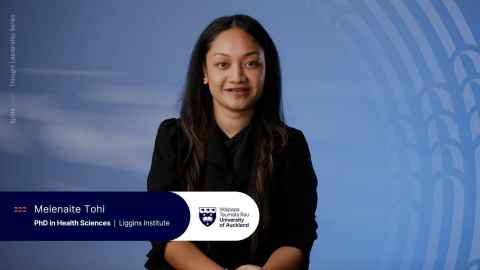

Melenaite's PhD research was driven by her personal story, her Tongan heritage, and a mission to improve health outcomes for Pasifika families.
Meet Melenaite
Ayamita did her undergraduate and masters degrees in India before moving to New Zealand to study the composition of human breast milk for her PhD.
Meet Ayamita
Briar is a current Liggins Institute doctoral candidate researching equity and preterm birth care in Aotearoa NZ as part of the Taonga Tuku Iho project.
Meet Briar
Liggins PhD student, midwife, and 3MT finalist, Caitlin Woods, is passionate about caring for wāhine and whānau through some of life’s most pivotal moments.
Meet Caitlin
Catriona is undertaking a PhD in Biomedical Science with the Liggins Institute, investigating the genetics of autism and co-occurring conditions.
Meet Catriona
Cristal, a doctoral candidate in Perinatal Sciences from the Dominican Republic, is investigating factors contributing to preterm births in New Zealand.
Meet Cristal
Nicholas is undertaking a PhD in Biomedical Science focusing on the gene-regulatory mechanisms driving Juvenile Idiopathic Arthritis.
Meet Nicholas
Liggins Institute student Nishantika is researching the interaction between diet and ageing for her PhD in Health Sciences.
Meet Nishantika
Through her research, doctoral candidate Woroud aims to advance our understanding of healthy ageing in adults with cerebral palsy (CP).
Meet Woroud
Learn what our past students have researched and why they chose to study at the Liggins Institute.
Meet our student alumni